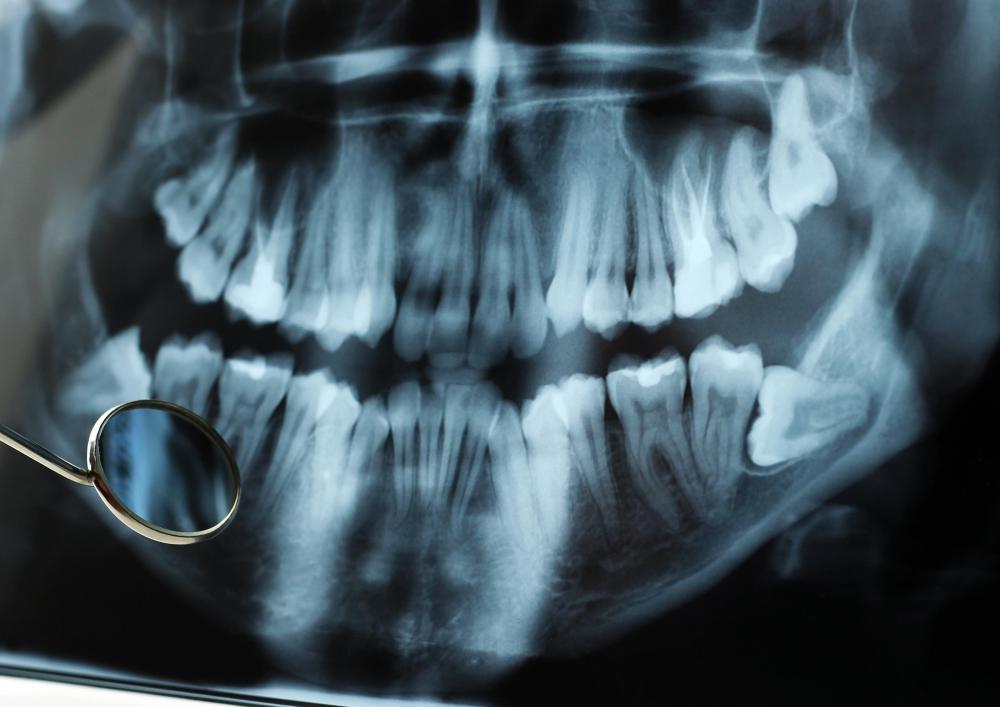At WiseGEEK, we're committed to delivering accurate, trustworthy information. Our expert-authored content is rigorously fact-checked and sourced from credible authorities. Discover how we uphold the highest standards in providing you with reliable knowledge.
What is Oral Medicine?
Oral medicine is the science of treating and preventing diseases of the mouth, teeth, face, or jaws. Oral medicine is an area of specialty within the field of dentistry. It can be thought of in much the same way that podiatry is the science of treating and preventing disease of the feet. Oral medicine focuses on conditions of the mouth, such as chronic pain or even cancers, and those conditions will naturally include problems associated with teeth, so a person specializing in oral medicine must also be a dentist.
Being an area of specialty, the oral medicine specialist is not a physician who is typically seen first when illnesses or injury of the mouth occur. Doctors specializing in oral medicine see patients who have been unresponsive to the prior treatments of dentists or doctors, or who have conditions that regular dentists and doctors are not qualified to treat. In most cases, a patient must first see his regular dentist or doctor before being referred to an oral medicine specialist.

The oral surgeon, sometimes called a maxillofacial surgeon, is the most common type of oral medicine specialist. The word "maxilla" means upper jaw bone, so the term "maxillofacial" indicates the jaw or face. To become an oral surgeon, a person must first successfully complete dental school and then serve seven or more years in a residency in which he trains in performing surgery. Unlike a regular dentist, the oral surgeon is more likely to perform procedures or operations in a hospital as opposed to a dental office, making him more similar to a doctor than a dentist.

Procedures that are frequently performed by oral surgeons include oral or facial reconstruction of people with cleft palate; treatment of facial injuries from severe head trauma, such as a car accident; and even reduction of the size of the tongue to treat sleep apnea. Oral surgeons also remove tumors of the mouth, face, or neck, and fit patients with prosthetics. The extraction of teeth, particularly difficult-to-reach wisdom teeth, is the most common procedure performed by oral surgeons.

Oral medicine can be thought of as a gray area that overlaps the fields of medicine and dentistry. There is some controversy surrounding oral medicine. It is unclear whether oral medicine is an area of specialty among dentists or doctors. In other words, there is difficulty in deciding if the oral medicine specialist is a surgeon who knows dentistry, or a dentist who knows how to do surgery. One goal of oral medicine is to bring about a climate of collaboration between the two professions to better serve society.
AS FEATURED ON:
AS FEATURED ON:













Discuss this Article
Post your comments